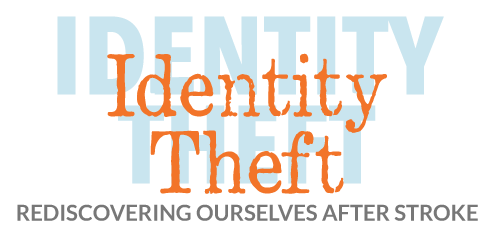
11 Jun Racial Justice and Health Justice — It’s Not Business as Usual
Image Source: Ted Talks: The link between health and racism
We’ve really been struggling for the past two weeks. We had planned to start a social media campaign on June 1st — for Aphasia Awareness month. What could be more central to our work than helping people to understand aphasia — the communication disability that afflicts about ⅓ of all stroke survivors, and is probably the single biggest reason Deb lost her career as a professor, changed our lives so dramatically, and put us on the path to this work.
And then George Floyd was murdered by Minneapolis police. Not too long after Breonna Taylor’s assassination inside her Kentucky home, and Ahmaud Arbery’s shooting death in a Georgia neighborhood. These are just a few of the names we know, and some of the most recent in a long list of racially motivated deaths that has plagued us for centuries. Communities across the country — across the world — organized to say this is not OK. And they continue to do so.
We mourn with and for their loved ones, and for all the Black lives we have lost. These recent atrocities are even harder to bear because they come in the midst of the devastating COVID-19 crisis, a crisis that is disproportionately impacting communities of color. We mourn for these losses too, and they remind us how much work needs to be done to create a country that truly delivers equal rights, and equal opportunity, to all. As actor Will Smith said, “Racism is not getting worse, it’s getting filmed.”
Several months ago we were privileged to hire a wonderful young woman to assist Deb with social media work — Courtney Cooper, then a junior at Menlo College. Then we hired her as a summer intern for 10 weeks so she could contribute more deeply and broadly. Little did we realize how, as an African American woman with disabilities, she would deepen our understanding of this critical issue that has existed for centuries and is now in the spotlight. Thank you, Courtney, for helping us to more deeply process these troubling times as we try to balance our outrage, preoccupation, and increased personal work to fight the racial injustice that is getting the attention it deserves, with our desire to continue pursuing the cause for which Stroke Onward was created.
We have to do both. So we’ve decided to restart our aphasia awareness social media campaign and look to highlight racial inequality that is on display in the healthcare system. The world can be a difficult place for people with disabilities like aphasia to navigate — and that can be doubly so for people of color. One of our messages is the importance of stroke survivors, particularly those with aphasia, finding their voices. For centuries, black Americans have been denied theirs.
So we are re-launching the social media campaign that Courtney has created for us, and hope to do so in a way that will not only create more awareness and understanding of aphasia — the condition that changed our lives — but also for some of the ways in which racial inequity deprives people of color the healthcare, and the lives, they deserve.
In grief and hope,
Debra and Steve
